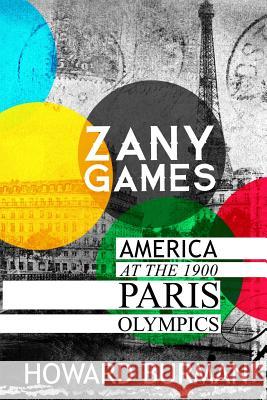Zany Games: America at the 1900 Paris Olympics » książka
Zany Games: America at the 1900 Paris Olympics
ISBN-13: 9781542745963 / Angielski / Miękka / 2017 / 460 str.
The 1900 Paris Olympic Games were zany in many ways: No opening or closing ceremonies were held. Some competitors had no idea they had actually participated in the Olympics. Competitions included swimming obstacle races, underwater swimming, motorcycle racing, live pigeon shooting, tug-of-war, ballooning and firefighting. Children were used in rowing events. Most winners received cups, trophies or prizes such as carriage clocks or paper knives. Some received money. Questions remain as to whether the French winner of the marathon ran the same course as the other runners. The track and field events were held on a lumpy grass field. Some American athletes refused to compete on Sundays setting up a situation in which a Jewish athlete couldn’t compete on a day that wasn’t his Sabbath while a Gentile could compete on a day that was his Sabbath. Fisticuffs followed. It remains unclear whether some events were part of the Olympics or not. These Games of the II Olympiad, held in conjunction with the 1900 Exposition Universelle, nevertheless provided some outstanding contributions to Olympism: Nearly 1000 athletes representing twenty-eight nations competed. Team sports were included. Women competed in sailing, lawn tennis and golf. A black athlete competed in Rugby. Alvin Kraenzlein remains the only athlete to have won four individual gold medals at one Olympic Game. Here is the story of the American participation in these remarkable Games, Games in which American athletes won 17 of the 23 track and field events.











